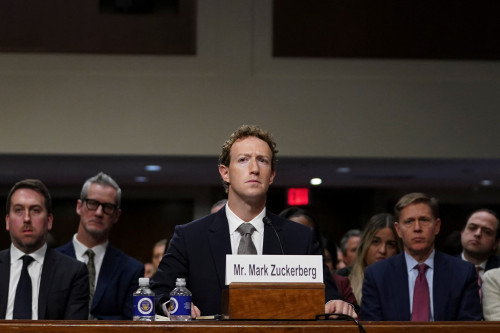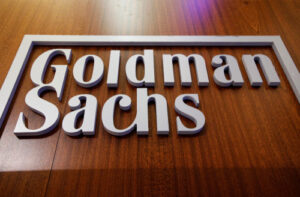By Jody Godoy
WASHINGTON (Reuters) – Meta Platforms CEO Mark Zuckerberg testified this week at a high-stakes trial in Washington where the U.S. Federal Trade Commission is seeking to unwind Meta’s acquisitions of prized assets Instagram and WhatsApp.
Here are five key moments from his testimony.

Ad RAD Intel
From Unknown to Unstoppable: The Pre-IPO AI Opportunity You Can Still Grab
You know that moment when a company goes from "never heard of" to "suddenly everywhere?" That's RAD Intel – and you can still invest. The company's valuation has already exploded 16X, from $5m to $85m and is growing despite market uncertainty.
Here's why insiders love them. They're helping Fortune 500 brands like Hasbro and MGM truly understand their audiences in real time - not just guess. It's AI that actually works. Pre-IPO, and fixing a multi-trillion dollar problem.
The company's proprietary AI-tech teaches brands how to create and deliver content that reads the room. RAD's tech helps brands understand why content works, who it actually resonates with, and what to say next. Now, brands can stop guessing and start making ads that actually land.
This company is on fire. Shares are just $0.60 – with backing from Adobe and Fidelity. Strength attracts strength: over 6,000 investors are in, including insiders from Google, Meta, and Amazon.
Get the full details before the next price change on 5/29.
DISCLOSURE: This is a paid advertisement for RAD Intel's Reg A offering. Please read the offering circular and related risks at invest.radintel.ai.
BREAKUP CONSIDERED
Zuckerberg in 2018 floated the idea of spinning off Instagram amid mounting pressure on Big Tech from antitrust regulators, in a sign of how seriously he took the threat of precisely the type of claims Meta now faces.
“I wonder if we should consider the extreme step of spinning Instagram out as a separate company,” he said in a document shown at trial. “While most companies resist break ups, the corporate history is that most companies actually perform better after they’ve been split up.”
“INSTAGRAM WAS BETTER”
Seeking to explain messages in which he worried that Instagram was a competitive threat, Zuckerberg said the app’s camera was simply better than camera features Meta had developed.
“We were doing a build vs. buy analysis” while in the process of building a camera app, Zuckerberg said. “I thought that Instagram was better at that, so I thought it was better to buy them.”
The comments appeared to bolster FTC claims that Meta chose to buy out rivals rather than compete. Meta argues that Zuckerberg’s motivations do not matter because it does not have a monopoly.
SOCIAL MEDIA CHANGING
The FTC claims Meta monopolizes the market for social networks where users share with friends and family. A key piece of Meta’s defense is that the social media landscape has changed vastly since it bought Instagram in 2012 and WhatsApp in 2014, and even since the FTC brought the case 5 years ago.
Zuckerberg testified that now around 20% of content on Facebook and 10% on Instagram is generated by users’ friends as opposed to accounts they follow based on interests.
“People just kept on engaging with more and more stuff that wasn’t what their friends were doing,” he said.
ALL-AD FEED
Purchasing Instagram diminished competition and let Meta manipulate the service in ways that benefited the company and not users, such as by boosting the number of ads, the FTC argues. More competition would result in better outcomes for users, such as pressure to show fewer ads, the FTC has said.
Zuckerberg defended ads, saying Meta’s system is designed to “show more ad content to people who like seeing ad content.”
He suggested that Meta has even contemplated introducing a feed consisting entirely of ads.
“I think we have discussed it at different points but I don’t think we have done it,” he said.
SLOW AGAINST TIKTOK
Zuckerberg testified that Meta was slow to recognize the threat TikTok posed in the late 2010s but that over the past few years the short video app has been the “highest competitive threat for Instagram and Facebook.”
The FTC has not included TikTok or YouTube in the market where it says Meta has a monopoly, arguing that they are broadcast platforms rather than networks for connecting with friends and family.
With TikTok and YouTube included, Meta’s share of the market drops below 30%, Meta has argued.
(Reporting by Jody Godoy in Washington; Editing by Mark Porter)





